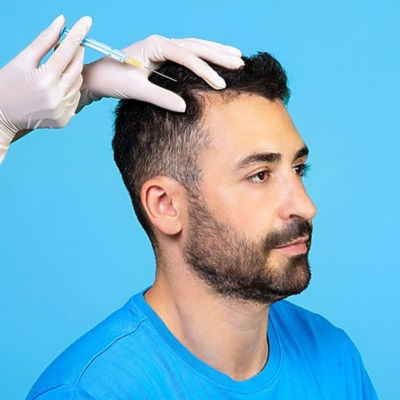Step-by-Step: What Happens During a FUT Hair Transplant in Muscat
Introduction
Hair loss can be a distressing experience, leading many individuals to seek solutions that promise a return to a fuller head of hair. Follicular Unit Transplantation (FUT) has emerged as a popular and effective method for hair restoration. This article provides a detailed, step-by-step overview of what happens during a FUT hair transplant, specifically in the context of Best FUT Hair Transplant Clinic Muscat.

Understanding FUT Hair Transplantation
FUT, or Follicular Unit Transplantation, is a surgical procedure where hair follicles are harvested from a donor site—usually the back of the scalp—and transplanted to the balding or thinning areas. The procedure is known for its efficiency and natural-looking results. It is vital for potential candidates to understand the process, as well as what to expect before, during, and after the procedure.
Pre-Procedure Consultation
Before the actual surgery, a comprehensive consultation takes place. During this phase, the surgeon evaluates the patient's hair loss pattern, overall health, and expectations. The following steps typically occur:
Medical Evaluation
The surgeon reviews the patient's medical history and conducts a physical examination to ensure they are a suitable candidate for the procedure. Blood tests may be ordered to check for any underlying health issues.
Hair Assessment
The doctor assesses the donor area and the recipient area, determining the number of grafts needed and discussing the anticipated results. This is also the time to address any questions or concerns.
Preparation for Surgery
The patient receives detailed instructions on how to prepare for the surgery, which may include avoiding certain medications, alcohol, and smoking in the days leading up to the procedure.
The Day of the Procedure
On the day of the FUT hair transplant, the patient arrives at the facility where the procedure will be performed. The following steps typically occur:
Anesthesia Administration
Once the patient is comfortable, local anesthesia is administered to numb the donor and recipient areas. This ensures that the patient remains pain-free throughout the procedure.
Harvesting the Donor Strip
The surgeon carefully removes a strip of scalp from the donor area, usually at the back of the head. The length of the strip depends on the number of grafts required. This strip contains hair follicles that will be transplanted.
Suturing the Donor Site
After the strip is removed, the surgeon meticulously sutures the donor site, which may be closed with stitches or staples. This area will heal over time, leaving a thin scar that is typically concealed by surrounding hair.
Dissecting Follicular Units
The harvested strip of tissue is then dissected under a microscope into individual follicular units, which typically contain one to four hair follicles each. This meticulous process is crucial for ensuring the natural look of the transplanted hair.
Transplantation Process
Once the follicular units are prepared, the actual transplantation begins.
Creating Recipient Sites
The surgeon creates tiny incisions in the recipient area, strategically placing them according to the patient’s natural hair growth pattern. The angle, depth, and densityof these incisions are crucial for achieving a natural appearance.
Implanting the Hair Follicles
The prepared follicular units are then carefully implanted into the recipient sites. This process requires precision, as the placement of each graft significantly affects the overall aesthetic outcome.
Post-Procedure Care
After the procedure is complete, the patient is given post-operative instructions to ensure optimal healing and hair growth.
Initial Recovery
The patient may experience some swelling, redness, or discomfort in both the donor and recipient areas. These symptoms are generally temporary and can be managed with prescribed medications.
Follow-Up Appointments
Regular follow-up appointments are essential for monitoring the healing process and addressing any concerns. The surgeon may also remove stitches or staples, depending on the technique used.
Long-Term Care
Patients are advised to follow specific hair care routines, avoid strenuous activities, and protect their scalp from sun exposure during the initial healing phase. It is important to maintain realistic expectations regarding hair growth, as results will become more apparent over several months.
Conclusion
FUT hair transplantation is a well-established and effective solution for individuals facing hair loss. By understanding the step-by-step process involved, from the initial consultation to post-operative care, prospective patients can make informed decisions about their hair restoration journey. In Muscat, with its growing demand for advanced cosmetic procedures, FUT offers a viable option for those seeking a permanent and natural-looking solution to hair loss. With proper care and realistic expectations, many individuals can achieve the desired results and regain their confidence.
